News
Airport photo: Charlyboy has forgotten he got contract from Rivers govt so soon-Ebinabo
Charles Oputa, alias Charlyboy has forgotten so soon that he got contract from Rotimi Amaechi when he was governor.
Recall, Charlyboy had in a trending photo taken at the airport lounge derided Amaechi, but the former Governor has kept mum over the issue because he extended his goodwill to a man he thought was a friend.
Alfred Ebinabo, in a post reminded the popular Nigerian musician to be cautious while throwing stones.
” Mocking an accomplished politician waiting at an airport departure lounge is not only childish but also undermines the dignity of public service. Amaechi’s career reflects a commitment to public duty, not a pursuit of transient power or luxury.
“Rotimi Amaechi’s career has been distinguished and impactful. Starting as the Speaker of the Rivers State House of Assembly, he quickly demonstrated leadership and vision, which earned him the governorship at a young age. As Governor of Rivers State, Amaechi implemented significant policies that improved the lives of many in the state. His peers recognized his leadership qualities, electing him as Chairman of the Governor’s Forum, a position through which he further influenced national policies.
Furthermore, his tenure as Minister of Transportation underlines his dedication to national development. Amaechi spearheaded numerous projects that have modernized Nigeria’s transportation infrastructure, including the revitalization of the railway system. His contributions in this role have been instrumental in fostering economic growth and connectivity across Nigeria.
Charly Boy’s comments suggest that power and influence should be constant fixtures in the lives of public servants. However, Amaechi’s presence in a public departure lounge should be seen as a testament to his humility and understanding of the transient nature of political power. Unlike many, he does not cling to the trappings of office but rather blends back into society, illustrating that public service is just that—service to the public.
It’s also important to correct the notion that Amaechi has been “used and dumped” by the Buhari administration. This narrative ignores his choice to live a life not dominated by power but by a continuous commitment to his country. Amaechi’s ability to navigate public and private life seamlessly speaks volumes about his character and dedication to Nigeria.
Mockery and derision from Charly Boy do a disservice to the serious and often difficult work performed by politicians like Amaechi. His career should be celebrated for its achievements and contributions to public good, not belittled due to a snapshot in a departure lounge. We should encourage a discourse that respects our leaders and focuses on constructive criticism rather than petty ridicule.
News
Rivers people should thank Tinubu for declaring Emergency Rule -Ex-Rivers HoS
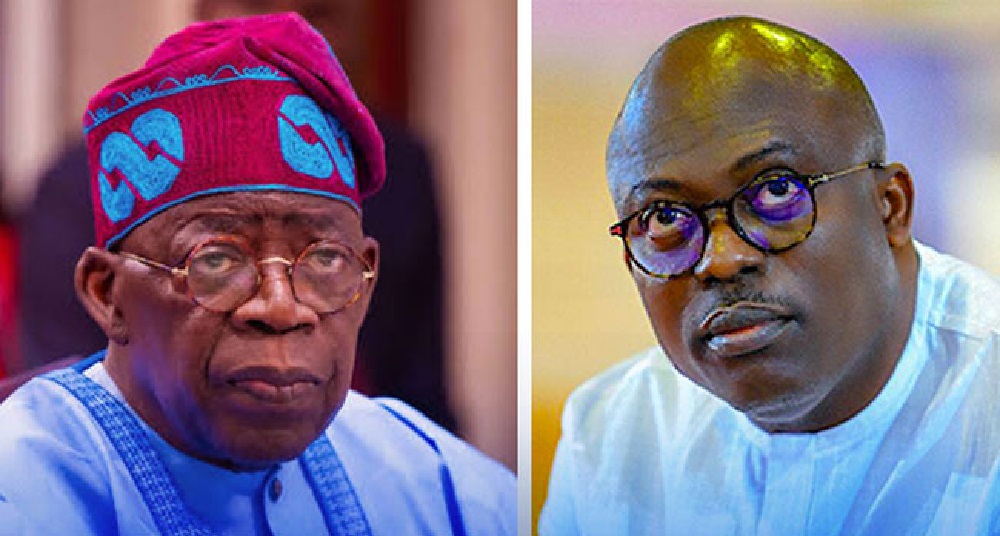
…says Fubara had outlined destructive plans to unleash terror
… using his brother in Bayelsa to support his acts
..plans to blow up oil pipelines
…how he ordered demolition of Assembly Complex
The immediate past Rivers State Head of Service, George Nweke has opened the underbelly of the suspended Rivers Governor Siminalayi Fubara’s highly destructive acts before Emergency Rule was introduced in the State.
Declaring via a viral sighted, Nweke said that Rivers people should thank President Bola Tinubu for his timely declartion Emergency Rule in the State.
“I want to use this medium to thank Mr President for his swift intervention in Rivers State crisis especially on the declaration of a state of emergency that was declared and assented to by our National Assembly.
“You will recall that when the governor was suspended as Head of Service I was the next in command, so I am not speaking as an outsider or as a novice, I am speaking as insider and as someone that has much information.
“If not for the intervention of Mr President, Nigeria would have faced the worst economic sabotage and Rivers State would have been in flames and by extension other neigbouring states of the level of insider destruction that I saw.
“First, it all started with the state house of assembly where the Governor Sim Fubara directed his chief of staff to burn down the assembly in a way to avert his suspected impeachment.
That evening Edison was in Government House with many of his boys including the former chairman of Ibio-Akpo one Mr Chijioke Ewon.
“I was there with them with a bag of money was handed over to Edison for that operation, though I did not actually know what it was meant for or the amount inside.
Read full interview below:
“My dear people of Rivers State, it is with humility and every sense of responsibility and a sense of patriotism that I stand to address you today as your former Head of Service and someone who served from my heart.
“You would recall that I was appointed Head of Service by our suspended Governor Sim Fubara. Let me also use this opportunity to appreciate him for giving me the opportunity to serve as Head of Service.
“With loads of misinformation on print and electronic media, I have chosen to put the record straight. I was not sacked, neither was I pressured to resign, I did so willingly from the depth of my heart.
“However as an insider and a key player in the administration and by my position who worked closely with the suspended governor, it will be unfair for me to keep mute or for me not to address some key factors that has affected or that will affect our state if we continue on this trajectory and I pause to say that good men must talk so that things will be put right.
“I want to use this medium to thank Mr President for his swift intervention in Rivers State crisis especially on the declaration of a state of emergency that was declared and assented to by our National Assembly.
You will recall that when the governor was suspended as Head of Service I was the next in command, so I am not speaking as an outsider or as a novice, I am speaking as insider and as someone that has much information.
If not for the intervention of Mr President, Nigeria would have faced the worst economic sabotage and Rivers State would have been in flames and by extension other neigbouring states of the level of insider destruction that I saw.
First, it all started with the state house of assembly where the Governor Sim Fubara directed his chief of staff to burn down the assembly in a way to avert his suspected impeachment.
That evening Edison was in Government House with many of his boys including the former chairman of Ibio-Akpo one Mr Chijioke Ewon.
“I was there with them with a bag of money was handed over to Edison for that operation, though I did not actually know what it was meant for or the amount inside.
I want to tell Rivers people today, that the house of assembly was complex, …was clear to brought down by a duel of Edison and some of his boys under the instruction of the sitting governor then.
I challenge them to an open confrontation and this will make us to throw more light on this.
A day after that incident, I almost resigned but I was very scared because I know the power of a sitting governor and he knew that I am aware of the whole plan and that I am discomforted with the uncautionable act and deliberate posture of innocence and mire of a sheep.
Another attempt was also made to destroy the residential quarters of the house of assembly members. If not for the press conference that was made there by Rivers youths, Rivers Elders and National Assembly members, that would have been another barbaric demolition in Rivers State.
I came to realise that they actually wanted to demolish that second building because after some weeks, he the governor personally told me and a couple of other that if he knew early he would have gone to pull down their hall before visiting the residential quarters of the assembly and that he didn’t actually know what they had, that they had such a beautiful hall where they are using now for sitting, I was so rudely shocked.
And I asked myself, how could a man that wants to lead his people be destroying his state assets and wasting public funds in a needless ego fight?
Thirdly, I want to advice some key stakeholders who have condemned the state of emergency made by the president and confirmed by the National Assembly to re-track that statement. They are speaking from point of ignorance.
I also understand that they are only seeing the surface. If they had knowledge, they will even be commending Mr President.
If the President did not take proactive steps, no one knows who would have been affected by the sinister plans that were cooking.
While I thank Mr President for the state of emergency that was declared in Rivers State for a period of six months, I will plead with him not to give up on Rivers State affairs because a lot is going on there with Governor Fubara.
One of the factors that got me removed was when Governor Fubara told me that judge to decide who becomes the next president of Nigeria and I asked him how will that work? Is it by votes or by what means? I am still worried.
He clearly told me that he is chief security officer of Rivers State and his brother is in charge of Bayelsa State and all the pipelines are under their care, that at the appropriate time, they will tell the boys what to do and fund was not an issue at all.
That was when he made that statement in his public function that and I quote “I will tell the boys what to do at the appropriate time” deep down in me, I knew that something was up and perhaps the time was near.
He boasted to be the David that will bring down the Goliath of Rivers State. That he has the backing of the crème de la crème in the state, the likes of our former Governor Dr Peter Odili and family, promised to use their contacts in the judiciary including some members of the University Council to break new grounds for him.
The plan was to start from Ijaw speaking areas to destroy oil facilities, to remove attention from the Ijaw and make it have a state wide look. The Ogoni, Oyigbo, Ahoda areas were to be bombed first before the Ijaw zones.
This would have brought down the government of President Tinubu and usher in a new president from the coalition of political parties with a vice president possibly himself as he was boasting.
The media must be captured by paying heavily for airtime and retaining the social media influencers and known social critics in their payroll.
I am not aware of what this revelation means but I am doing this to free my conscience and warn those innocent persons that are used to swell public sentiments, that there is more that meets the eyes in the Rivers matter.
Sometimes I sleep over a the Government House but I started becoming very uncomfortable when Governor Bala Mohammed and some other stakeholders that several nurturer visits to Rivers State.
I recall that one of such visits he told me that he would support Bala Mohammed for President or any other Northerner, that discussion in still ongoing.
Though I am not bothered by who he supports or not, I am more concerned about the quantum of state resources that were being released to these visitors at each of those unwanted visits.
Let me draw the attention of the Nigerian Labour Congress to call the chairman of their Rivers State chapter to order to avoid politicizing Labour.
I am privy to several private meetings between the governor and Labour leaders in the state and largess that accompany each meeting to compromise Labour Union and I pause to ask, why? What is actually the benefits to gain from all these unnecessary destructions.
More worrisome is the several meetings between the governor, his chief of staff and some militant leaders, details of these meetings, I am not privy too since I was not allowed into such meetings. However each meeting ended with huge sums of money in hard currency.
I wish to state categorically that Rivers people and indeed Nigerians are the beneficiaries of the declaration of the state of emergency rule in Rivers state and not Governor Fubara neither it is our former minister Nyesom Wike.
Finally I wish to call Mr President to urge the sole administrator to step up his guards and be very vigilant because I am aware of the sinister arrangement and dastardly plans to continue to harsh their plans if not put in check.
This accounts for the organised media condemnation and seeming public outcry against Mr President and National Assembly. Those who love democracy, those who love Rivers State, those who love development in any ramification and those who love humanity in general will always protect humanity and democracy.
Mr President sir, you have just protected democracy and humanity in Rivers State, you are our hero in Rivers State, thank you sir.
I can now sleep having cleared my conscience.
Long live Federal Republic o f Nigeria!
Long live Rivers State!
THE END
News
Don’t be afraid of men in uniform – Military advises Nigerians

The Chief of Defence Civil-Military Relations at the Defence Headquarters, Rear Admiral Olusanya Bankole, has urged Nigerians not to be intimidated by men in uniform, stressing that security personnel’s primary duty is to protect citizens.
Speaking on Channels Television’s Sunrise Daily programme on Friday, Bankole reassured the public that military personnel are committed to safeguarding lives.
He said, “People should not feel scared when they see people in uniform; the men in uniform are meant to protect you.
“That sensitisation, even from the depot in Zaria, from the NDA to the NDC, is there.”
Bankole described a career in the military as a noble pursuit, emphasising its role in both territorial protection and human security.
He added, “The military career is a noble career; the military career is to help the society; apart from protecting the territorial integrity of the society, we are protecting humans.”
The Defence chief expressed optimism that the military would regain public trust and respect, under the leadership of Chief of Defence Staff, General Christopher Musa.
News
Housewife to die by hanging for abducting, throwing minor into well
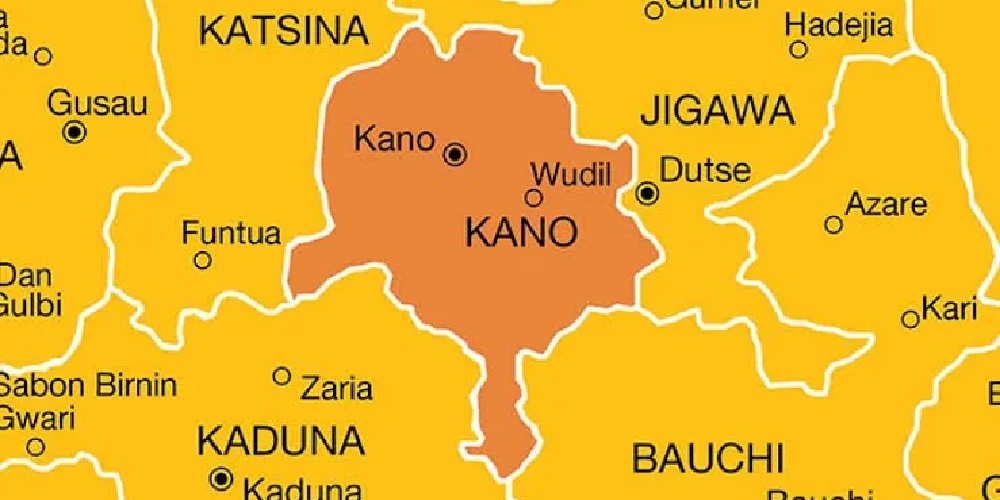
The Kano State High Court on Friday sentenced a housewife, Fadila Adamu, to death by hanging for kidnapping and throwing an eight-year-old girl into a well, causing her death.
The defendant, who lives in the Sabuwar Gandu Quarters, Kano, was convicted of kidnapping and culpable homicide.
Delivering judgment, Justice Yusuf Muhammad-Ubale ruled that the prosecution had proven its case beyond reasonable doubt and sentenced the defendant to death by hanging.
“I hereby sentence the defendant to death by hanging for kidnapping and throwing the victim into a well, which caused her death,” he ruled.
Earlier, the prosecution counsel, Lamido Abba-Sorondinki, told the court that the defendant committed the offence on July 14, 2019, at the Tudun Wada Quarters, Kano.
He said that at about 4:45 p.m., the defendant kidnapped the minor and took her to her house.
“The defendant told her sister that the deceased was the daughter of her friend, whose mother had travelled to Ghana and asked her to keep the child until she returned.
“On July 17, 2019, at about 6:30 p.m., the defendant caused the death of the minor when she threw her into a deep well situated in the Tukuntawa Quarters Kano,” he said.
Mr Abba-Sorondinki presented seven witnesses, including the defendant’s statements and a medical report confirming the victim’s death.
The defendant denied committing the offence.
The prosecution said the offence contravened sections 274(b) and 221(a) of the Penal Code.
The defence counsel, Zulaihat Tata, presented four witnesses, including the defendant, to testify in her defence.
(NAN)
-
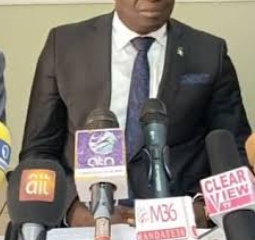
 Opinion20 hours ago
Opinion20 hours agoPROFESSOR HUMPHREY NWOSU: THE UNSUNG HERO OF TRUE NIGERIAN DEMOCRACY
-
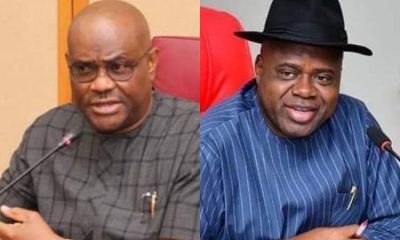
 News21 hours ago
News21 hours agoWike’s mega rally: Your alarm is baseless , aide tells Gov Diri
-
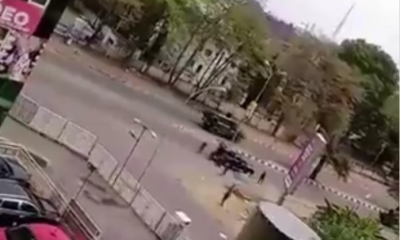
 News17 hours ago
News17 hours agoBREAKING: Gunfire Erupt as Soldiers, Shi’ite Group Clash in Abuja [VIDEO]
-

 Economy24 hours ago
Economy24 hours agoSEE Dollar to Naira Exchange Rate Today, Friday, March 28, 2025
-

 News13 hours ago
News13 hours agoCatholics Protest Against incessant Kidnappings In Edo
-
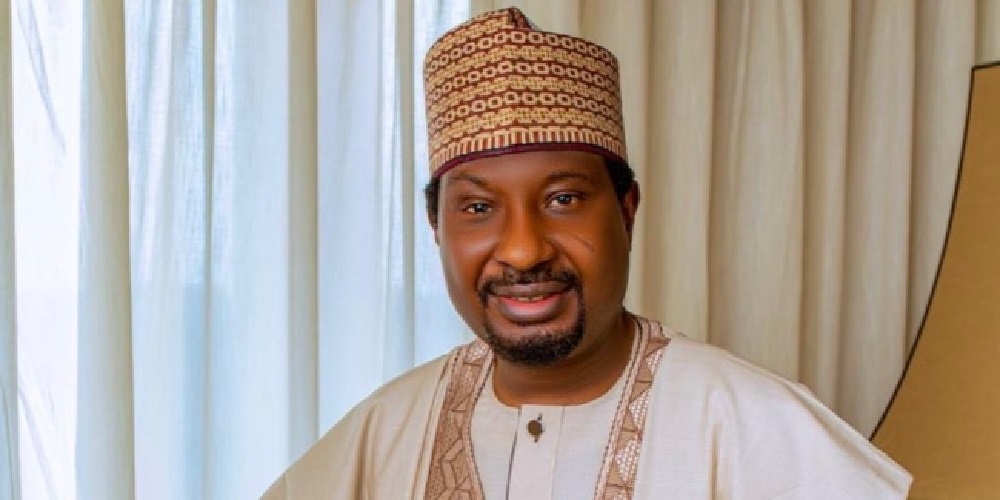
 News12 hours ago
News12 hours agoDeputy Senate President urges security agencies to go after killers of Northern travellers in Edo
-

 News21 hours ago
News21 hours agoLove gone awry: Annie Idibia Drops Husband’s Name, Reverts To ‘Macaulay’
-
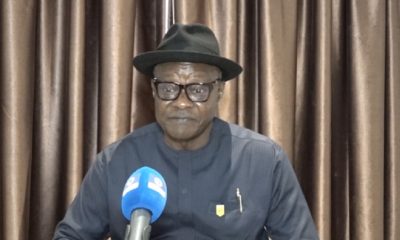
 News5 hours ago
News5 hours agoWATCH moment ex-Rivers HoS, Nweke reveals plans by Fubara to unleash mayhem before Emergency Rule (Video)






